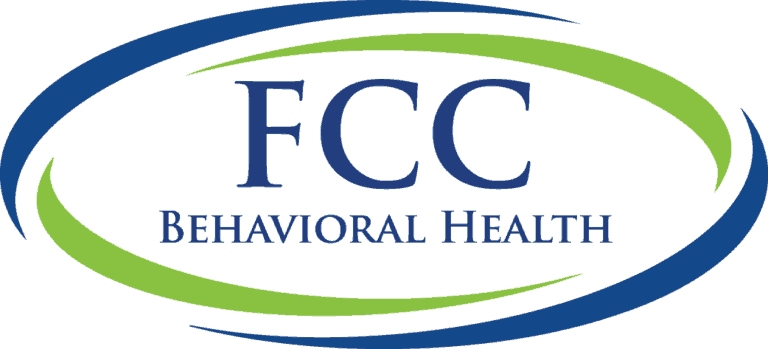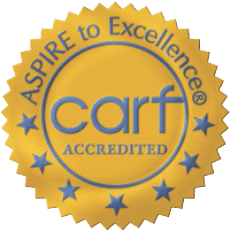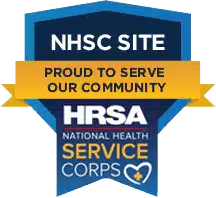Assessment
The Assessment process includes a variety of assessment and screening tools used to help the Diagnostician determine a diagnostic profile and recommendations for treatment. Information is gathered from the collateral sources and from the person-served. The assessment is conducted with respect to the adolescent’s age, development, culture and education. This process identifies personalized treatment goals and expectations of the person-served.
Individual Counseling
Individual Counseling is provided on a face-to-face basis by a licensed/credentialed counselor in accordance with the individuals person-centered care plan to resolve problems related to substance use. Various treatment modalities are provided by appropriately trained staff to include, but not limited to: Motivational Interviewing, Cognitive Behavioral Therapy, Moral Recognition Therapy, Eye Movement Desensitization Reprocessing, Integrated Dual Disorders Treatment and Relapse Prevention Therapy.
Group Counseling
Group Counseling is face-to-face, goal-oriented therapeutic interaction among a licensed/credentialed counselor and two or more person(s)-services. This service is designed to promote the adolescent’s functioning and recovery through personal disclosure and interpersonal interaction among group members. The usual and customary size of group counseling sessions is eight (8) adolescents and shall not exceed twelve(12) adolescents to promote full participation, disclosure and feedback.
Group Education
Group Education consists of the presentation of general information, and application of this information to participants through group discussion. Group topics are designed to promote recovery and enhance social functioning. The usual and customary size of group educational sessions shall not exceed thirty ( 30) adolescents. Examples of topics discussed in group education are:
- Anger management
- Communication
- Family issues
- PAWS symptoms
- Substance use and its effects
- Gender specific issues
- Life skills
- Domestic violence
- 12-Steps
- Parenting
- Study Skills
- Suicide Prevention
- Budgeting and Money Management Skills
- Critical Thinking
- Nutrition
- Social Skills
- Emergency Preparedness and Personal Safety
- Spirituality
- Self esteem
- Wellness/Health
- Coping skills
- Teen issues
- Sexual issues and sex education
- Relapse prevention strategies
- Early recovery
- Co-occurring issues
- Vocational Skills
- Peer Support Groups
- Criminal Thinking
- Self Harm Prevention
- Decision Making
- Problem Solving
- Community Living Skills
- Social Supports
- Skill Building
Academic Education
Academic Education services are provided in the residential and day treatment programs. The Education Instructor (El} works with the local school settings to address all educational needs. The El works with the local schools to facilitate reintegration. The adolescent programs utilize the Edmentum Learning Courseware system. The courseware is a standards-based on line curriculum that provides a wide range of core subjects, electives and advanced placement offerings. The courseware system also allows the students to work on credit recovery. The El links the student with the courseware program to establish the appropriate prescribed courses specific to the adolescent’s needs and abilities.
Nursing
Nursing services are provided to monitor the overall health and wellness of persons-served to include coordination of pharmaceutical services; medication education; medication efficacy; health education; TB, HIV, STD screenings and preventative education. Primary care needs can be obtained for the adolescents through referral and collaboration with community resources. All residential person(s)-served receive a physical exam by a local physician.
Care Coordination
Care Coordination services consist of specific activities in collaboration with, or on behalf of the persons-served, and are delivered in accordance with the person-centered care plan. The services provided are appropriate and relevant to the goals of the person served with respect to their strengths, needs, abilities, and preferences. Care Coordination services maximize adjustment and functioning within the community while achieving sobriety and sustaining recovery, maximizing the involvement of natural support systems, and promoting independence and responsibility through outreach activities.
Drug Screens
Drug Screens are completed upon intake, and at any interval as needed during the course of treatment. Drug Screens may include urine specimens being sent to the lab for confirmation, an on-site dip screening test, and/or mouth swabs.
Family Therapy
Family Therapy is a planned, face-to-face, goal oriented therapeutic interaction with a qualified staff member, the person-served, and appropriate family members. The Family Therapist works with each family to identify family strengths, needs and preferences. The purpose of family therapy is to address and resolve problems in family interaction related to substance use problems and recovery. Family Therapy is strongly encouraged and is scheduled on a case-by-case basis to promote access to services.
Integrated Treatment for Co-Occurring Disorder (ITCD)
Integrated Treatment for Co-Occurring Disorder(ITCD) is a service that provides counseling to those identified as having both a substance use diagnosis and a mental health diagnosis. Co-occurring issues are integrated into the person-centered care plan. Co-occurring specific groups are also provided. If it is determined that a person-served needs a psychiatric evaluation, this service can be provided on campus, or coordinated through the agency telemedicine program.



